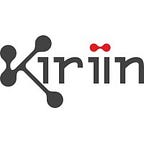Challenging “The Social Dilemma”, Web 3.0 returning internet to users: THE NEXT MIGRATION
The internet, one of the most important technological revolutions in the history of mankind, has evolved tremendously since its inception three decades back. Today, almost 60 (https://www.statista.com/statistics/617136/digital-population-worldwide) of the world population use the internet regularly for almost all tasks from communication, shopping, banking, etc. One such “gift” that the internet has bestowed upon us is social media that more than half of the world uses now. But despite all its affordances, we cannot ignore the serious data hoarding and psychological manipulation social media platforms perform on their users. Although we were aware of it to a certain extent, the Netflix documentary, “The Social Dilemma”, exposed how Big Tech companies like Google, Facebook, Twitter, YouTube, and Instagram perform mass psychological manipulation, suppress freedom of expression, and exploit their user’s data for profit. With this mass censorship and monopolization of our data on the internet, we are now greatly in need of a new web technology that allows for a more secure and less-surveyed future- Web 3.0.
But, first, how social media platforms are using our data?
With social media platforms like Facebook, Twitter, Instagram, and others being used by billions of people daily to share their opinions about everything from politics to fashion trends, it’s no surprise that social media companies are exploiting our data for profit. The data collection starts right from the point you sign up to these platforms. Over time, everything you post, like, search, click share, and even delete contributes to building your behavioral, preference, and demographic data. But what does this mean for the average user? It means that they know your name, where you live and work, who your friends are, what you like to eat or drink, and a whole lot more about you. These companies then build personas about you like what you like, dislike to figure out what specific adverts to send your way. This is how they exploit our data for money. Today, social media is a social and cultural phenomenon that has had an unprecedented impact on the social, political, and economic spheres of our society. This centralized model where the Big Techs control our data is one of the main issues in Web 2.0.
What is Web 3.0?
Web 3.0 is the next generation of Web development that will make Web browsing more personalized and interactive for users. Web 3.0 includes features such as Web-based applications, increased use of Semantic Web languages, improved user interfaces (e.g., voice recognition), and a transition from Web presentation to interact with Web content being managed through better integration with other sources of data or services.
How does Web 3.0 differ from the previous generations of web technologies?
Web 1.0, the first stage of the World Wide Web was composed of static web pages that were made available for people to read but not interact with. As new tools emerged, Web 1.0 became more dynamic and gave rise to Web 2.0. The transformation from Web 1.0 to Web 2.0 was a huge leap that enabled user interaction with dynamic websites that act more like applications than read-only info pages. This is the social web where social networking sites feature prominently in users’ online activities. Web 2.0 enabled big companies including Facebook, Twitter, and Google to control and collect users’ data (with or without their permission) and monetize it through selling to third parties for targeted advertising, posing a severe threat to our privacy. This calls a need for a decentralized web, where users have control over their data. Thus, in essence, Web 3.0 is conceptualized to create value for users, not platforms. This is one of the main differences between Web 3.0 and Web 2.0.
Blockchain- The technology that powers Web 3.0
One of the notable features of web 3.0 is data decentralization. Web 3.0 networks will operate through decentralized protocols that are the founding blocks of blockchain- a decentralized database that records digital information in blocks of data which are then linked together across computers by means of cryptography. The data and other transactions in Web 3.0 can be made without any central authority regulating them because they happen between the users themselves. This removes any risk of fraud or manipulation from third parties who want control over your money for their own gain at your expense!
The social and cultural phenomenon of social media has had an unprecedented impact on the social, political, and economic spheres of our society. With social media platforms in control of our data, Web 3.0 can greatly mitigate this situation by returning the internet back to users. To sum up, Web 3.0 would be a huge leap forward from Web 2.0, where data is mostly stored in centralized repositories. In Web 3.0, users have explicit control of their data and heightened web security measures, powered by the underlying blockchain technology.
At Kiriin Labs AG, we are revolutionizing the world of blockchain. Kiriin Labs AG is a Fintech and WEB3 technology company providing a wide range of innovative solutions in the areas of DeFi, NFT 2.0, decentralized gaming and digital identity, Learn more about how our products and solutions can help your enterprise. Engage with our blockchain experts to help shape your digital future. Get in touch at info@kiriin.com
Kiriin Labs AG believes in Web 3.0 , where power is redistributed, with people able to access online services and platforms without relying on a concentration of large technology companies that operate centralised servers.
Image by Gerd Altmann from Pixabay
